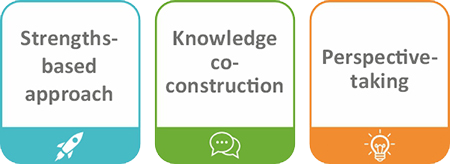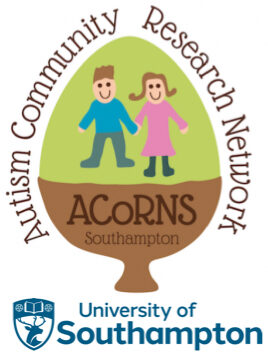'I Am' Digital Stories Method
This method uses filmmaking processes to create an ‘I am’ Digital Story of participants’ experiences – short videos that give information about participants. The method supports people who have been marginalised or ignored by research practice due to assumptions that their ‘voices are too hard to reach’.
The method engages marginalised voices in two ways:
- By facilitating co-construction to enable their identities and lived experiences to be documented and shared the way they choose.
- By making the output of the project accessible to the person at the heart of the research.
Participants are the storytellers in the process. Positioning them as ‘capable knowers’ provides epistemic justice as it enables more diverse participation and representation in research (Catala et al., 2021).
Click on the different parts of the diagram to learn more about each element.

